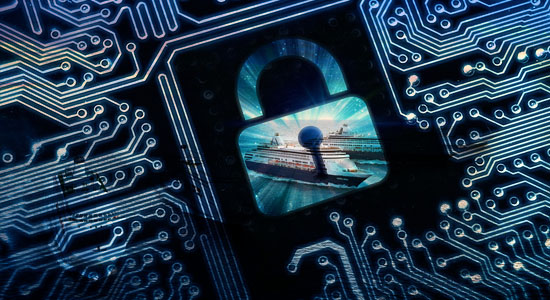The risk of cyber attacks targeting ships' satellite navigation is pushing nations to delve back through history and develop back-up systems with roots in World War Two radio technology.
Ships use GPS (Global Positioning System) and other similar devices that rely on sending and receiving satellite signals, which many experts say are vulnerable to jamming by hackers.
About 90 percent of world trade is transported by sea and the stakes are high in increasingly crowded shipping lanes. Unlike aircraft, ships lack a back-up navigation system and if their GPS ceases to function, they risk running aground or colliding with other vessels.
South Korea is developing an alternative system using an earth-based navigation technology known as eLoran, while the United States is planning to follow suit. Britain and Russia have also explored adopting versions of the technology, which works on radio signals.
The drive follows a series of disruptions to shipping navigation systems in recent months and years. It was not clear if they involved deliberate attacks; navigation specialists say solar weather effects can also lead to satellite signal loss.
Last year, South Korea said hundreds of fishing vessels had returned early to port after their GPS signals were jammed by hackers from North Korea, which denied responsibility.
In June this year, a ship in the Black Sea reported to the U.S. Coast Guard Navigation Center that its GPS system had been disrupted and that over 20 ships in the same area had been similarly affected.
U.S. Coast Guard officials also said interference with ships' GPS disrupted operations at a port for several hours in 2014 and at another terminal in 2015. It did not name the ports.
A cyber attack that hit A.P. Moller-Maersk's IT systems in June 2017 and made global headlines did not involve navigation but underscored the threat hackers pose to the technology dependent and inter-connected shipping industry. It disrupted port operations across the world.
The eLoran push is being led by governments who see it as a means of protecting their national security. Significant investments would be needed to build a network of transmitter stations to give signal coverage, or to upgrade existing ones dating back decades when radio navigation was standard.
U.S. engineer Brad Parkinson, known as the "father of GPS" and its chief developer, is among those who have supported the deployment of eLoran as a back-up.
"ELoran is only two-dimensional, regional, and not as accurate, but it offers a powerful signal at an entirely different frequency," Parkinson told Reuters.
"It is a deterrent to deliberate jamming or spoofing (giving wrong positions) since such hostile activities can be rendered ineffective," said Parkinson, a retired U.S. Airforce Colonel.




















)